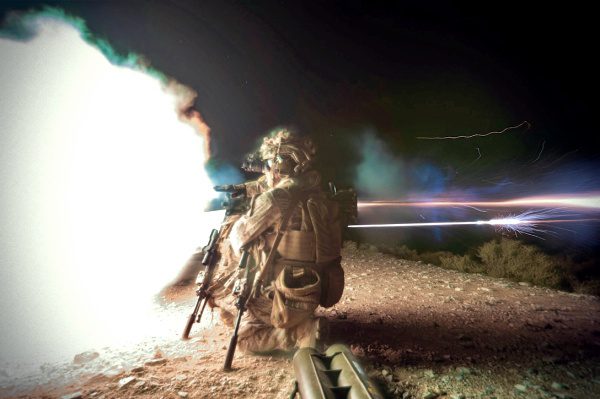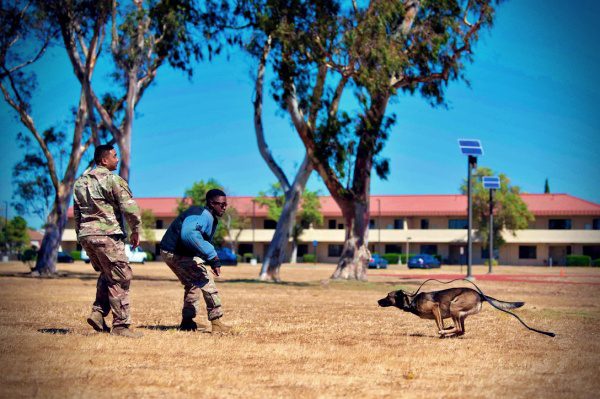Military Defense Lawyer – Your Article 32 Investigation Rights
Criminal defense lawyer, Michael Waddington, discusses the accused’s rights at a UCMJ Article 32 investigation. Call 1-800-921-8607 to speak with a civilian defense counsel today if you have questions about military law, court-martial cases, or the Article 32 hearing.
Below is a transcript from the YouTube video: Your Rights at a Military Article 32 Investigation
At the Article 32 investigation, the accused has the right to have his case heard by a fair, neutral, and detached investigating officer. And at the Article 32. The accused has the right to be present. The accused has the right to have either a civilian or military attorney or both. The accused has a right to confront witnesses that are testifying against him and seeing the evidence presented on behalf of the government, the evidence that the government’s trying to use to put him in prison. The Article 32 investigation is much more robust than your typical grand jury investigation. And it’s something that you should take very seriously. And you should plan your defense at an Article 32 investigation well in advance to set yourself up for success in your case.
Military Criminal Defense Counsel
Partner Alexandra Gonzбlez-Waddington, has represented hundreds of American military members accused of felony crimes and has aggressively defended some of the most serious war crime cases from the Iraq and Afghanistan conflicts. Alexandra co-authored three leading criminal trial guides on cross-examination, Pattern Cross-Examination for Sexual Assault Cases: A Trial Strategy & Resource Guide, Pattern Cross-Examination for DNA and Biological Evidence, and Pattern Cross-Examination of Expert Witnesses, published by a leading legal publisher. These books are used by criminal defense attorneys in the United States and globally. In addition, Alexandra was one of the first defense lawyers to serve as a Public Defender for the Augusta Judicial Circuit.
Our firm’s other founding lawyer, Michael Waddington, graduated from Temple University School of Law in Philadelphia, PA, and is a current member of the American Board of Criminal Lawyers, one of the most esteemed legal groups comprised of some of the most respected criminal lawyers in the country. In addition, a few of Michael Waddington’s cases were made into documentary films, such as “Taxi to the Dark Side.” He also commonly lectures on criminal lawyers on military law. Our hard-hitting court-martial defense lawyers will use our skills to defend your court-martial or administrative separation (ADSEP) case.
General Information on an Article 32 Investigation
Trial counsel control. When the defense has a firm hand on the merits or sentencing, presenting some or all of that evidence may help the Trial Counsel appreciate the realities of his situation. However, suppose the element of surprise will help during the trial. In that case, it is usually best not to show the defense case at the preliminary hearing because usually, the government’s referral decision is the same regardless of what occurs during the preliminary hearing.
Opportunity to submit additional information. No later than 24 hours after the close of the hearing, the trial counsel, defense counsel, and victim named in the specification may submit matters that the submitter deems relevant. The defense counsel may also submit matters to rebut those submitted by the government or the named victim. R.C.M. 405(k)(1)-(2).
The Military Rules of Evidence do not apply, with the following exceptions: Rules 301-303 and 305 apply in their entirety. Rule 412 applies, except for the constitutionally required exception in M.R.E. 412(b)(3). Be aware that R.C.M. 405(i)(2)(A)(i) incorrectly refers to the rules of evidence in the 2016 Manual for Courts-Martial (MCM). Military Rule of Evidence 412 was renumbered in the 2019 MCM but otherwise remains substantially the same.
Section V (Privileges) of the Military Rules of Evidence apply, except Rules 505(f)-(h) and (j); 506 (f)-(h), (j) (k), and (m); and 514(d)(6).
For the rules that apply, references to “military judge” means preliminary hearing officer. The preliminary hearing officer is authorized to determine whether evidence is admissible under M.R.E. 412(b)(1) or (2), but the “victim may directly petition the Court of Criminal Appeals for a writ of mandamus under Article 6b.” R.C.M. 405(i)(2)(C).
Typically, counsel should have a copy of DA Pam 27-17, Procedural Guide for Article 32(b) Preliminary Hearing Officer (June 18, 2015), until published an updated version.
When is an Article 32 preliminary hearing necessary?
Before charges can be referred to a general court-martial. Art. 32(a)(1), UCMJ; R.C.M. 405(a).
The exception to the Article 32 requirement. Adequate substitute. R.C.M. 405(b). Suppose there has already been a preliminary hearing of the subject matter of the offenses before the accused is charged, and the accused was present and afforded the rights to counsel, cross-examination, and presentation of evidence. In that case, no additional preliminary hearing is required. This does not happen often.
Waiver.
The accused may waive the preliminary hearing. Art. 32(a)(1)(B), UCMJ; R.C.M. 405(m); R.C.M. 705(c)(2)(E); and R.C.M. 905(e). Article 32 is a personal right of the accused and usually cannot be waived by a defense counsel without the accused’s informed consent. United States v. Garcia, 59 M.J. 447 (C.A.A.F. 2004) (finding the civilian defense counsel ineffective by waiving the Article 32 hearing without the client’s consent). See the United States v. Von Bergen, 67 M.J. 290 (C.A.A.F. 2009) (finding harmless error where the accused was denied an Article 32 investigation after he withdrew from his pretrial agreement after his original guilty plea was reversed on appeal). Be aware that, as stated in R.C.M. 405(m), the government may go forward with the Article 32 preliminary hearing even if the accused waives it.
The scope of the preliminary hearing.
The preliminary hearing will be limited to an examination of these issues:
First, determine whether the specification alleges an offense.
Second, determine whether there is probable cause to believe that the accused committed the offense charged.
Third, determine whether the convening authority has court-martial jurisdiction over the accused and the crime.
Recommend the disposition that should be made of the case. R.C.M. 405(a) and (e)(1). The Article 32 preliminary hearing scope remains narrow, but it is not as narrow as the government likes to argue.
The second and fourth purposes are relatively broad. “Probable cause” must be based on the “totality of the circumstances,” including issues such as the credibility of witnesses. A recommendation on the disposition of a case requires the hearing officer to consider the policy, factors, and options referenced in R.C.M. 306(b) and its Discussion, R.C.M. 306(c), R.C.M. 405(l)(2)(J), and Discussion, and the non-binding Disposition Guidance outlined in Appendix 2.1 of the MCM.
The preliminary hearing is not intended to serve as a means of discovery. Although the discovery language was removed from R.C.M. 405(a), it remains in the Discussion. Defense counsel should not argue discovery as the purpose for any action because the hearing is limited to the stated purposes. However, discovery is still a likely consequence of the other stated goals of the preliminary hearing. See also R.C.M. 404A.
Uncharged offenses can be examined. Art. 32(f), UCMJ; R.C.M. 405(e)(2). Suppose evidence adduced during the preliminary hearing indicates the accused committed any uncharged misconduct. In that case, the preliminary hearing officer may examine evidence and witnesses relating to the uncharged offense(s) without preferral of additional charge(s), provided notice, and certain rights are afforded to the accused as outlined in R.C.M. 405(f).
The preliminary hearing officer’s recommendations are advisory. R.C.M. 405(a)
Article 32 preliminary hearings are quasi-judicial proceedings, not a disciplinary or law enforcement tool within the context of Article 31. Accordingly, the Article 31 requirement for warnings does not apply at trial or the Article 32 proceeding. United States v. Bell, 44 M.J. 403 (C.A.A.F. 1996).
Participants.
Convening authority. R.C.M. 405(c). Any court-martial convening authority (including a summary court-martial convening authority) may direct an Article 32 preliminary hearing. Usually, the special court-martial convening authority (S.P.C.M.C.A.) will order it. Thus, there are usually no issues here but look for convening leaders who are the accuser, a nominal accuser, or have more than an official interest in the case. Art. 1(9), UCMJ. See, e.g., McKinney v. Jarvis, 46 M.J. 870 (A. Ct. Crim. App. 1997); United States v. v. Dinges, 55 M.J. 308 (C.A.A.F. 2001).
Preliminary hearing officer. The preliminary hearing officer shall be an impartial judge advocate unless impracticable due to exceptional circumstances. In exceptional cases, the convening authority may appoint an impartial officer. An impartial judge advocate shall be available to provide legal advice to the preliminary hearing officer. Art. 32(b)(1), UCMJ; R.C.M. 405(d)(1).
In the Army, for sexual assault-related cases, the preliminary hearing officer must be a judge advocate without exception. DA Pam 27-17, para. 1-4b. Although the DA Pam is not yet updated, this requirement remains the Army Rule, and defense counsel should argue this point if it is in their client’s best interest.
Whenever practicable, the preliminary hearing officer shall be equal or senior in grade to the detailed military counsel for both sides. The preliminary hearing officer must be impartial. It may be appropriate to voir dire the preliminary hearing officer. The preliminary hearing officer may not be the accuser in the case.
The preliminary hearing officer must be impartial but not disqualified merely because of: C.M.R. 639 (A.F.B.R. 1954). (1) Prior knowledge about the case.




